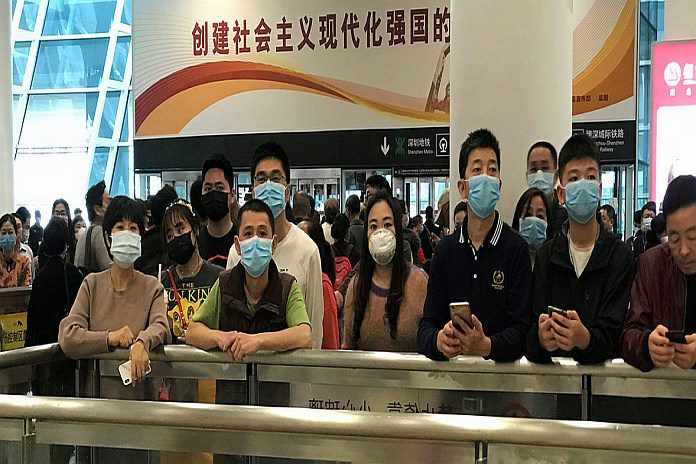NEW YORK, USA – In the face of concerns that people of Chinese descent are being discriminated against as fears grow over the spread of the disease, UN chief António Guterres called for international solidarity and an end to any ill-founded discrimination of the outbreak’s victims noted that the World Health Organisation (WHO) has taken steps to ensure that the coronavirus epidemic that has claimed hundreds of lives in central China does not spark a dangerous social media “infodemic” fuelled by false information.
In a press conference at UN Headquarters in New York on Tuesday, UN secretary-general António Guterres said WHO had decided on declaring the global emergency over the new coronavirus “at the right moment” and had been very active in lending support to China and other countries grappling with cases.
“We are trying to mobilize our best capacities and best resources” he told journalists, adding that no UN staff member has so far been infected.
He urged “a strong feeling of international solidarity, a strong feeling of support to China in these difficult circumstances and all the countries that might be impacted, and a strong concern to avoid the stigmatization of people that are innocent and victims of the situation.”
WHO director of Global Infectious Hazard Preparedness, Sylvie Briand, told journalists in Geneva on Tuesday that the agency has already moved fast to dispel an online rumour that the virus can be caught from an infectious “cloud”.
“People had suddenly the impression that the virus was in the air and…there is this cloud of the virus” that can cause infection, she said. “This is not the situation. Currently, the virus is transmitted through droplets and you need a close contact to be infected…So we try to clarify what we know about science – what is still unknown – and provide recommendations that can help people to protect themselves and their families.”
Dr Briand’s comments echo those of WHO director-general, Tedros Adhanom Ghebreyesus, who on Monday said that the agency was working with major internet platforms to ensure that WHO’s information about the coronavirus appears first in online searches.
To date, the respiratory illness has claimed 425 lives, according to WHO; there are more than 20,000 reported cases in China and 158 cases outside the country.
In an appeal for global cooperation to combat the phenomenon, Dr Briand said it was important not to censor information, but rather communicate what is known about the virus, and what is not known.
She said that those most at risk were those with reduced immunity because of underlying illnesses such as cancer and other chronic illnesses, in addition to senior citizens.
In the two weeks since the virus was declared a global health emergency by the WHO’s emergency committee, Dr Briand said there is no evidence that the virus has mutated significantly. It was also too soon to assess how dangerous the virus is, she added, reiterating the WHO’s advice that handwashing and wearing facemasks when coming into contact with infected individuals remain the recommended practice.
Highlighting the willingness of the Chinese authorities to tackle the outbreak, Dr Briand said that scientists were keen to get more information on those who had died. This would help understand the key underlying health conditions that put people at risk, she said, adding that researchers are currently focusing on pregnant women and young children to see if infection patterns were similar to influenza.





